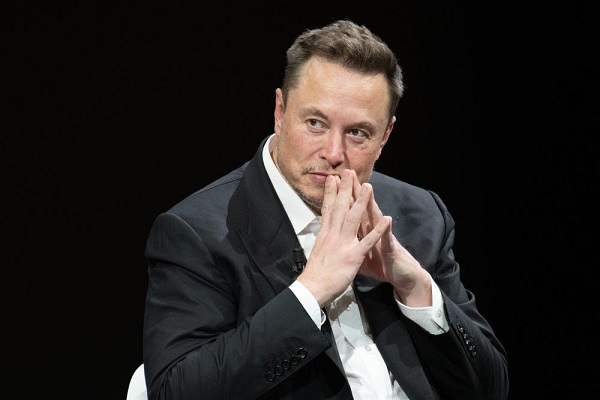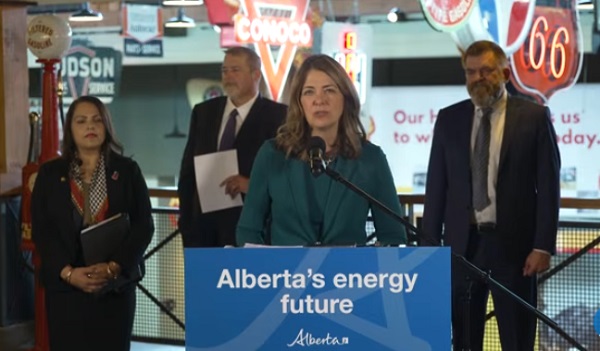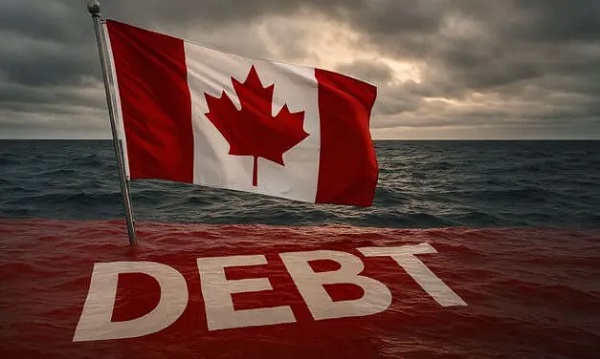International
UN committee urges Canada to repeal euthanasia for non-terminally ill patients

From LifeSiteNews
The UN Committee on the Rights of Persons with Disabilities has warned against Canada’s euthanasia program, urging the repeal of legislation that allows the killing of non-terminally ill individuals.
Canada’s euthanasia regime has become too radical even for the anti-life United Nations, who recently called on the nation to repeal its law allowing non-terminally ill patients to qualify for death through the state’s “Medical Assistance in Dying” program.
In closing remarks published March 21, the UN Committee on the Rights of Persons with Disabilities argued that Canada should repeal its 2021 MAID expansion legislation that allowed those who are chronically ill but not terminally ill to be put to death by the state.
The committee said that Canada’s regime “establishes medically assisted dying for persons with disabilities based on negative, ableist perceptions of the quality and value of the life of persons with disabilities, including that ‘suffering’ is intrinsic to disability rather than the fact that inequality and discrimination cause and compound ‘suffering’ for persons with disabilities.”
It pointed out that “the concept of ‘choice’ creates a false dichotomy by setting up the premise that if persons with disabilities are suffering, it is valid for the State Party to enable their death.”
In Canada, euthanasia is divided into Track 1 and Track 2 requests. Track 1 requests deal with those whose death is allegedly imminent or foreseeable. Track 2 requests deal with those who are not terminally ill but have lost the will to live due to their having chronic health problems.
The UN committee took specific issue with Track 2 MAID, writing that it is “extremely concerned about the 2021 amendments to the State Party’s Criminal Code through Bill C-7 that expanded the eligibility criteria for obtaining Medical Assistance in Dying (MAID), known as ‘Track 2’ MAiD by removing the ‘foreseeable death’ criteria.”
The committee further recommended that Canada not euthanize its citizens for mental health reasons and abandon additional expansions of the program. Such an expansion is slated to come into effect in 2027.
It is worth noting that while Track 2 cases of MAID are indeed evil, so are Track 1 cases. The Catholic Church infallibly teaches that euthanasia is a grave evil tantamount to murder and must be rejected in all circumstances.
The UN committee’s criticism of Canada’s euthanasia regime comes after many have pointed out that the regime has spawned a culture of death and eugenics in the country, with the disabled and the poor often being those who request or who are even suggested to request death via Track 2 MAID.
In one case, a Nova Scotia grandmother revealed that doctors repeatedly offered her euthanasia while she underwent cancer treatment, making her feel as though she was “better off dead.”
“I felt like a problem that needed to be [gotten] rid of instead of a patient in need of treatment,” she said. “I don’t want to be asked if I want to die.”
Similarly, in May of last year, LifeSiteNews reported on a Canadian man who felt “completely traumatized” and violated that he was offered MAID “multiple times” instead of getting the proper care he needed while in the hospital.
The most recent reports show that MAID is the sixth highest cause of death in Canada. However, it was not listed as such in Statistics Canada’s top 10 leading causes of death from 2019 to 2022.
When asked why MIiD was left off the list, the agency said that it records the illnesses that led Canadians to choose to end their lives via euthanasia, not the actual cause of death, as the primary cause of death.
According to Health Canada, in 2022, 13,241 Canadians died by MAID lethal injections. This accounts for 4.1 percent of all deaths in the country for that year, a 31.2 percent increase from 2021.
Business
The richest man alive just got a whole lot richer

Quick Hit:
Elon Musk on Wednesday became the first person in history to hit a $500 billion net worth, according to Forbes. The Tesla, SpaceX, and xAI founder’s fortune now sits roughly $150 billion ahead of Oracle co-founder Larry Ellison, with Tesla’s surging stock and SpaceX’s record valuation driving the leap.
Key Details:
- Forbes reported Musk’s net worth crossed the $500 billion mark around 3:30 p.m. ET, fueled by Tesla’s nearly 4% stock gain Wednesday — adding roughly $9.3 billion to his wealth.
- Musk’s fortune has grown from $24.6 billion in March 2020 to $100 billion by late 2020, $200 billion in 2021, $400 billion in 2024, and now $500 billion.
- Tesla shares have nearly doubled since April, when Musk said he would step back from his role leading President Trump’s Department of Government Efficiency (DOGE) to focus on Tesla. The EV maker’s market cap is now within 10% of its all-time high, with Musk’s 12% stake worth about $191 billion.
Elon Musk achieved yet another major milestone Wednesday, becoming the first ever person worth $500 billion. Musk, who became the first person ever worth $400 billion or more in December, is $150 billion ahead of runner-up Larry Ellison—and half-way to becoming the world’s first… pic.twitter.com/h9LJmAvT7F
— Forbes (@Forbes) October 1, 2025
Diving Deeper:
Elon Musk made history Wednesday as the first individual ever to surpass a $500 billion personal net worth, according to a report from Forbes. The Tesla and SpaceX CEO’s fortune crossed the milestone in mid-afternoon trading, following another surge in Tesla’s share price and continuing investor confidence in Musk’s technology empire.
Tesla stock jumped nearly 4% Wednesday, pushing the company’s valuation closer to its all-time high. Forbes estimates Musk’s 12% stake in Tesla alone is worth about $191 billion. The remainder of his wealth comes from SpaceX — currently valued at around $400 billion — and his artificial intelligence firm xAI, worth roughly $60 billion.
Musk’s rise in wealth has been staggering. In March 2020, he was worth $24.6 billion. By late 2020, he had crossed the $100 billion threshold, reaching $200 billion in 2021 and $400 billion last year. His $500 billion milestone now puts him more than $150 billion ahead of the world’s second-richest person, Oracle co-founder Larry Ellison.
In a post on X last month, Musk said his compensation and influence over Tesla were not about money, but control over the company’s direction: “It’s not about ‘compensation,’ but about me having enough influence over Tesla to ensure safety if we build millions of robots,” he wrote. “If I can just get kicked out in the future by activist shareholder advisory firms who don’t even own Tesla shares themselves, I’m not comfortable with that future.”
According to Forbes, Tesla’s board recently proposed a new compensation plan for Musk worth as much as $1 trillion — the largest package ever offered to a corporate executive. The plan would grant Musk up to 12% of Tesla’s stock if the company hits a $8.5 trillion market cap and other performance milestones over a decade.
At his current trajectory, analysts suggest Musk could become the world’s first trillionaire by 2033 — an outcome that seemed unthinkable just five years ago. As Musk continues to balance his leadership at Tesla, SpaceX, and xAI, his financial empire appears to be expanding as rapidly as the industries he dominates.
Crime
Drug trafficker says Trump battle with the cartels is making an impact

Quick Hit:
A Sinaloa Cartel leader told CNN that President Trump’s border crackdown has made cartel operations “much tougher,” admitting the gang’s smuggling business has been disrupted by the administration’s hardline approach.
Key Details:
- CNN correspondent David Culver interviewed the masked cartel member in the back of an SUV. The man — clad in black clothing, gloves, and sunglasses — conceded that Trump’s policies have made his criminal work harder, responding flatly, “Oh yeah. Yeah.”
- He said Trump’s border enforcement has disrupted cartel routes and made smuggling riskier, limiting the group’s ability to operate freely.
- The trafficker, who admitted to killings and cross-border crimes, said he wanted to warn others, telling CNN, “It’s not a life. It’s not good… Once you get in, you can’t get out.”
A member of the Sinaloa Cartel — responsible for trafficking untold amounts of deadly drugs into our country — says President Trump has unquestionably made his job tougher.
The Trump Admin will not relent until this evil has been eradicated from our country once and for all. pic.twitter.com/1dNYEHlyQi
— Rapid Response 47 (@RapidResponse47) September 30, 2025
Diving Deeper:
In a rare on-camera interview, a senior figure in Mexico’s Sinaloa Cartel — once run by Joaquín “El Chapo” Guzmán — acknowledged that President Donald Trump’s border and immigration crackdowns are taking a toll on cartel operations. CNN’s David Culver conducted the shadowy interview in the back of an SUV, describing the man as a hardened killer who has “done it all — from killing to coordinating smuggling operations.”
Asked directly if Trump’s border actions have made his job more difficult, the man didn’t hesitate. “Oh yeah. Yeah,” he replied. When Culver pressed further, he added, “Yep.” His matter-of-fact admission underscored what many border agents have long said — that Trump’s aggressive policies are slowing cartel activity and making it costlier, riskier, and far less predictable.
CNN noted that under Trump’s enforcement posture, major smuggling routes have been cut off or heavily monitored, forcing traffickers into less profitable, more dangerous corridors. Those operational disruptions have led even cartel insiders to acknowledge the effectiveness of U.S. countermeasures.
Despite his own record of violence, the masked trafficker told Culver that he wanted to deter others from following his path. “It’s not a life. It’s not good,” he said in broken English, before warning in Spanish, “Once you get in, you can’t get out.”
The man’s comments echoed those of former Sinaloa operative Margarito “Jay” Flores Jr., who told Fox News last month that Trump’s “aggressive approach” would “send a strong message to every drug trafficker across Latin America.” Flores, who worked under El Chapo’s network, said the Trump administration’s actions had already shaken criminal supply chains across Mexico and Central America.
That aggressive campaign appears to be continuing. NBC News recently reported that U.S. forces are preparing operations targeting cartel-linked trafficking hubs inside Venezuela — part of a broader strategy to dismantle networks at their source.
Taken together, the admissions from cartel veterans and the administration’s expanding reach leave little doubt: even the world’s most ruthless traffickers are feeling the pressure. President Trump’s border crackdown is working — and the cartels know it.
-

 Alberta14 hours ago
Alberta14 hours agoWith no company willing to spearhead a new pipeline under federal restrictions, Alberta takes the lead
-

 National1 day ago
National1 day agoCanada’s birth rate plummets to an all-time low
-

 Fraser Institute2 days ago
Fraser Institute2 days agoAboriginal rights now more constitutionally powerful than any Charter right
-

 Alberta2 days ago
Alberta2 days ago$150 a week from the Province to help families with students 12 and under if teachers go on strike next week
-

 espionage1 day ago
espionage1 day agoNorth Americans are becoming numb to surveillance.
-

 Crime1 day ago
Crime1 day agoPierre Poilievre says Christians may be ‘number one’ target of hate violence in Canada
-

 Alberta14 hours ago
Alberta14 hours agoHalfway River First Nation makes history with Montney natural gas development deal
-

 Alberta15 hours ago
Alberta15 hours agoTaxpayers: Alberta must scrap its industrial carbon tax



